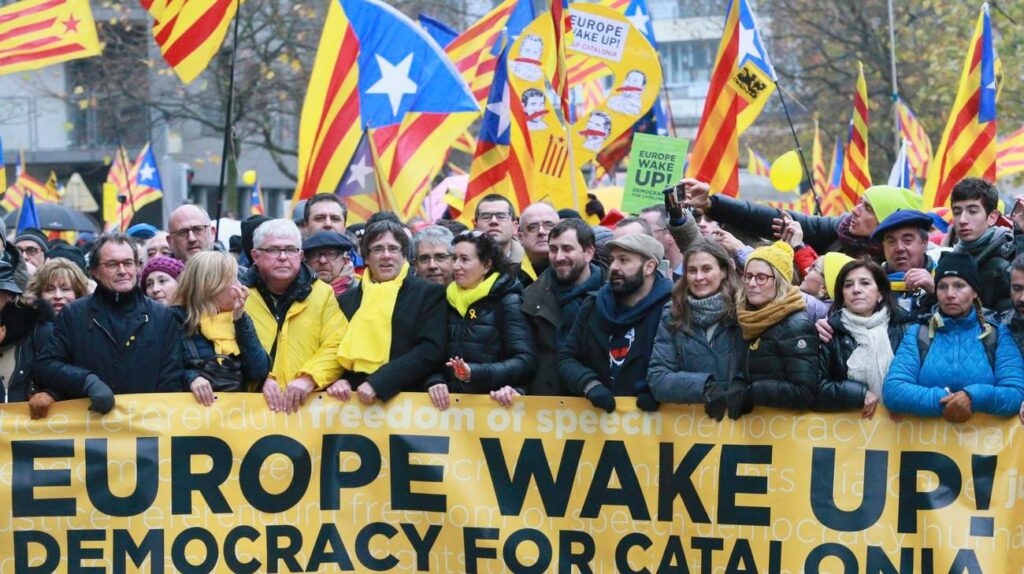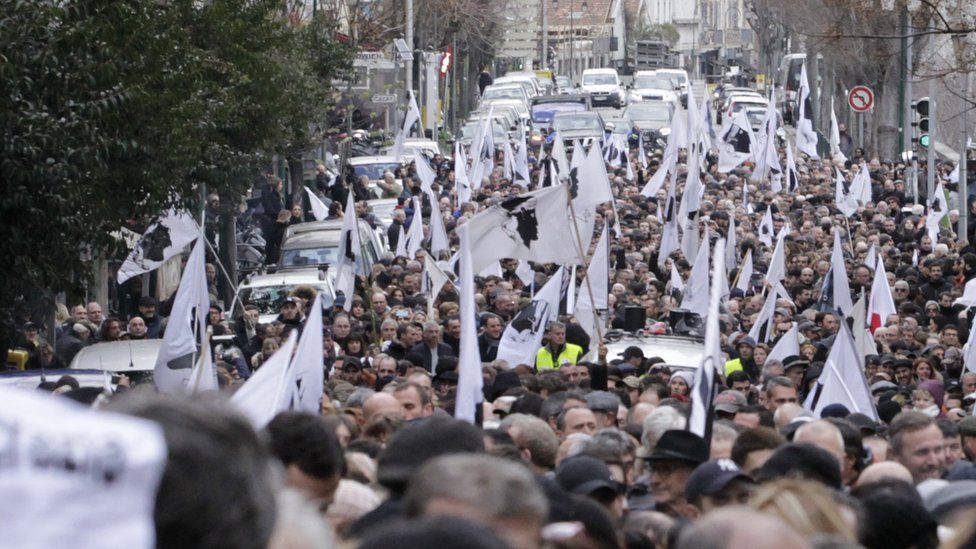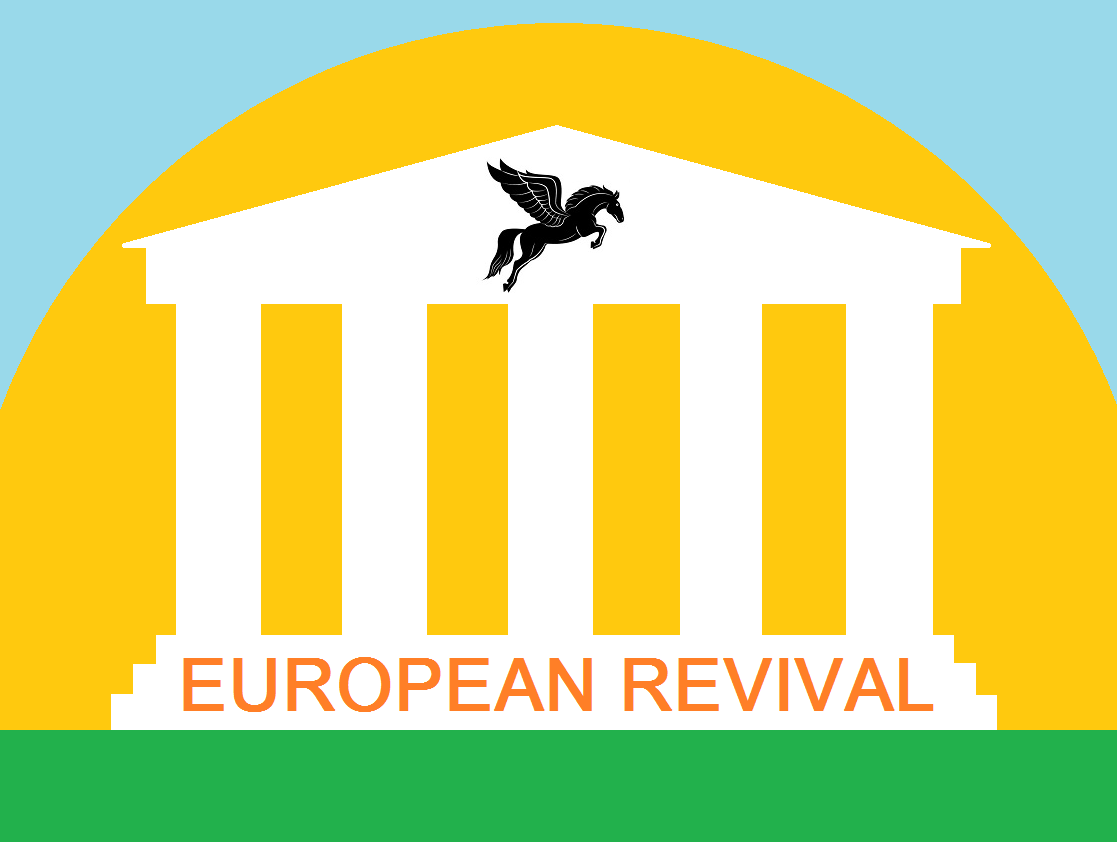The (apparent) schizophrenia of an anti-sovereignist European Union every other days

The ruling class of the European Union – like many of its admirers – love to feel enlightened and modern, always “on the right side of history”, always loyal to the noisy and often inconsistent dictates of politically correct; always ready to run after every fashion, from Black lives matter to Me, too and so on. But above all, always ready to systematically attack, from the height of their enlightenment, the notorious European national sovereignisms and populisms. So much so that their attitude could sometimes end up seeming contradictory: for example when they systematically take the side of state governments every time a protest arises in their suburbs demanding greater autonomy, greater freedom of action, greater protection for cultural specificities, up to the aspiration to independence. In those cases, for one reason or another, however, for them the establishment is always right, and the supranational and anti-sovereignist European Union nips any centrifugal temptation in the bud, even if only of a cultural nature. At best, it behaves like Pontius Pilate and turns the other way, knowing full well that this means the victory of the questioned establishment.

When that protest is not born in the squares (full of beggars and ignorant people, easy prey of the most vulgar populism), but rather in democratically elected regional assemblies – such as in Catalonia or Corsica -, obviously nothing changes in their attitude. This is why Spain can sleep peacefully even though the Catalan separatists win one election after another; or France can continue to deny the most basic rights to linguistic minorities. Politically correct in this case is not valid according to them, indeed it has nothing to do with it. We are aware that these are complex situations, but the principles of self-determination and democracy cannot be invoked only when it suits, every other days.

There are people who think that Brussels ignores the rights of linguistic minorities as part of its precise plan to homogenize and control Europe. Apart from that, this apparent schizophrenia can be easily unraveled if we consider that today in Europe, beyond the fashions that are always pursued and the phrases of circumstance that are always repeated, there is a big emptiness. No wide-ranging political vision, no attention to genuinely cultural aspects within the European continent, no consideration for democratic dynamics, etc. In Brussels, behind the economic calculations (especially financial ones) and the power of bureaucracy, as a matter of fact there is nothing, much less a soul. And as always happens when you do not have deep, or simply authentic, cultural coordinates, you are condemned to follow fashions, turning in circles and not landing anywhere. Where is the rock star who enthuses for the cause during the pop concert? Where is the overpaid soccer player with pigtails who kneels in the middle of the field before the match? Where is the show? Without that circus, fashions are not created, and if there is no fashion, there is no need to follow it. Therefore they can safely and dutifully continue their routine of finance and bureaucracy, the things that really matter, the things Europe needs. Or more exactly the things that matter to them, but since they are the ruling class of Europe, things unfortunately coincide.
This state of affairs, this combination of bureaucracy and financial economism, is not ultimately dictated only by the pursuit of their interests, which of course remains the main component (see the sliding doors that have long existed between the highest bureaucratic offices of the European Union and the states that compose it on the one hand and the investment banks and multinational corporations on the other). Unfortunately, there is something more that gives the coup de grâce to every cultural instance that faces the European continent.

For some time now, individuals at the top of European states and European Union have come from finance (much more rarely from the real economy) and – albeit to a lesser extent – from crystallized law (business lawyers and bureaucrats loyal to the establishment). In most cases these individuals simply do not know what culture is – we mean the real one, not the fashions that rage in the media and social networks. It is not their world, they do not know it and they do not understand it. They usually have a level of humanistic culture equivalent to that provided by primary school. There are exceptions of course, but they are exceptions and like all exceptions they confirm the rule, instead of destroying it. To rise to the top, just economic and legal training is needed, otherwise no way and the current ruling class is served. For these individuals, following fashions systematically, repeating trivial phrases galore is not just a political cunning, it is the only thing they can culturally afford to do.

In most cases, the media will think about transforming these banal individuals without envergure – to use a Gaullist expression – into enlightened statesmen who direct Europe towards a grandiose future. Every so often, disasters of enormous proportions such as the Afghan one (which falls on the shoulders of both Europeans and Americans) can make many citizens doubt the real abilities of these enlightened statesmen. But these motions of perplexity luckily for them do not last long, because in that circus the pace never slows down, on pain of boredom. A new number is coming soon where it is easier to play the part of the statesman. The starlet and the singer of the moment have already started the dances, politicians in power just need to follow them and the sad previous number is already forgotten. In this Europe the course is missing but the staging never stops. Obviously, show must go on.
